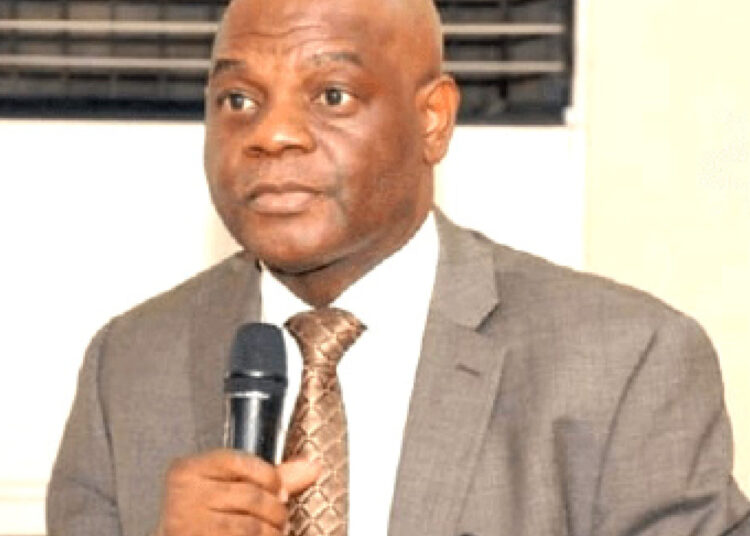For decades, Nigeria’s brightest researchers have faced an ironic hurdle. Despite having the expertise and groundbreaking ideas, many lacked the facilities to fully test, verify, and commercialise their work at home.
From analysing mineral samples to running advanced medical tests, the country’s scholars often had no choice but to ship samples abroad, a process that drained funds, slowed innovation, and left Nigeria dependent on foreign laboratories.
That reality is now set to change. The Tertiary Education Trust Fund (TETFund) has unveiled an ambitious plan to establish six multidisciplinary research laboratories across the country, each equipped with state-of-the-art technology to support virtually every kind of research under one roof.
The Executive Secretary of TETFund, Arc. Sonny Echono, announced the development in Abuja while hosting the leadership of the Nigerian Institute of Architects (NIA), led by its President, Arc. Mobolaji Adeniyi. According to him, four of the facilities are already under construction in Port Harcourt, Kano, Abuja, and Lagos, while two more will break ground before the year ends.
“These laboratories will ensure that our researchers no longer need to send samples abroad for analysis. We are building the capacity for all forms of research to be conducted here in Nigeria,” Echono said.
By equipping Nigeria’s tertiary institutions with facilities that meet global research standards, TETFund is positioning the country to compete internationally in innovation, science, and technology.
Echono, himself a former president of the Nigerian Institute of Architects, framed the move as part of a broader effort to transform the physical and intellectual landscape of Nigerian campuses.
He noted that when he assumed leadership of the Fund, he observed a trend of “dotting campuses with all sorts of blocks” buildings that lacked architectural character and failed to reflect the dignity of higher learning.
“We are now transiting to iconic buildings. Campus architecture has its own serenity, its own grandeur, known all over the world. We are trying to recreate that on our campuses.”
The TETFund boss disclosed that several landmark projects will soon be commissioned nationwide, offering Nigerians a glimpse of the new vision in action.
On Thursday, he said the Fund will unveil completed projects in Kano, followed by similar events in Osun State before the end of the month. These developments, Echono said, are designed to set a new standard for the aesthetics and functionality of learning environments in Nigeria. “It’s about showing Nigerians what our campuses should look like, not the horrible videos we have seen depicting inhumane living environments,” he stressed.
Echono also used the occasion to pledge personal and institutional support for the Institute’s ongoing projects. He promised to mobilise friends of TETFund to help furnish the NIA’s Resource and Exhibition Centre, currently under construction.
In addition, he endowed an annual prize for the Institute’s Architecture Annual Awards and pledged sponsorship for the publication of its journal. These gestures, he said, were part of his commitment to nurturing a culture of excellence within and beyond academia.
The six upcoming laboratories will not only cut costs but also accelerate research timelines and encourage collaboration among scientists in different fields.
A researcher in environmental science will be able to partner with a biochemist or an engineer within the same facility, rather than sending samples to multiple institutions, or worse, overseas.
According to him, he ripple effect is far-reaching, eliminating delays caused by shipping and customs processes, reducing the need for foreign currency to pay for overseas services, giving Nigerian researchers world-class tools at home, reducing brain drain, and encouraging local industries to partner with academic researchers for product development.
This model will mirror successful approaches in countries like South Korea and Singapore, where centralised, high-capacity research hubs fuel both academic and commercial breakthroughs.
In fields such as advanced materials, biotechnology, and petroleum engineering, Nigerian researchers have often been hamstrung by the absence of equipment that could match their ambitions.
Too often, promising projects stalled not because of a lack of talent but because of the lack of high-precision instruments. In other cases, foreign labs controlled access to data, leaving Nigerian researchers as passive participants in their own studies.
TETFund’s intervention therefore, aims to break this cycle. By hosting the laboratories within Nigerian universities and ensuring open access to qualified researchers. The Fund is not just upgrading infrastructure, but democratising research capability.
With construction already underway in four states, the first set of multidisciplinary labs could be operational within the next 18 to 24 months. If completed as planned, they will stand alongside TETFund’s other major achievements, from the Centres of Excellence to its expanded academic staff training programmes.
But Echono’s broader vision goes beyond equipment and buildings. It is about fostering an environment where Nigeria’s universities embody both the functional needs and the aesthetic values of higher learning places where cutting-edge research happens in surroundings that inspire.
“We are trying to recreate on our campuses the kind of ambience that is known all over the world, serene, grand, and fit for the pursuit of knowledge.”
The establishment of the six laboratories marks a turning point in Nigeria’s quest for research independence. If successful, the initiative will make it possible for a Nigerian scientist working on a new vaccine, a breakthrough in renewable energy, or an innovative construction material to complete every stage of their research without leaving the country.
It is a bold bet on the idea that when you give talented people the right tools, they will not only solve local problems but also contribute solutions to global challenges.
For now, all eyes will be on Port Harcourt, Kano, Abuja, and Lagos as the first four facilities rise.
The meeting also underscored the growing partnership between TETFund and the Nigerian Institute of Architects.
Arc. Mobolaji Adeniyi, who leads the Institute, praised TETFund’s infrastructure interventions as “indelible marks in the annals of our educational development.”
She singled out the TETFund Centres of Excellence (TCoEs) as a prime example of how targeted investments can reshape the country’s higher education sector.
“Our institutions are rightly called Citadels of Knowledge & Learning. The ambience, command of presence, and design ethos of our first-generation universities should be reflected across all campuses.
TETFund’s interventions are helping to restore that standard.”
She also called for more opportunities for NIA members to design and shape institutional infrastructure, stressing that local expertise must play a central role in crafting the future of Nigeria’s educational architecture.











